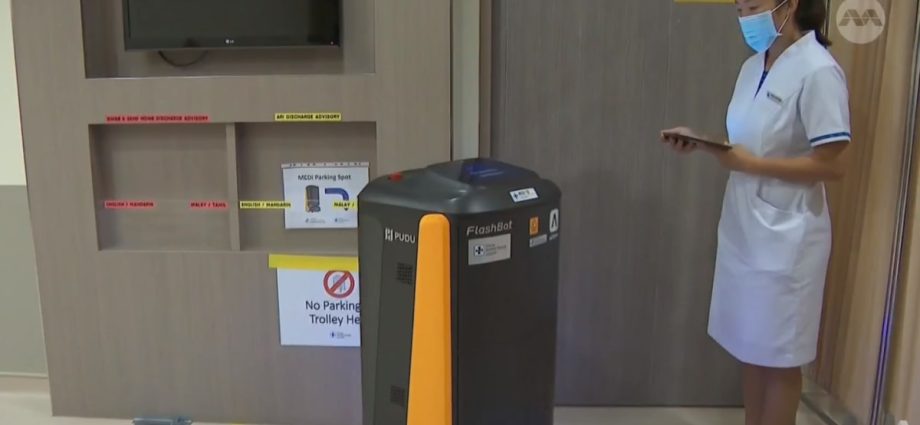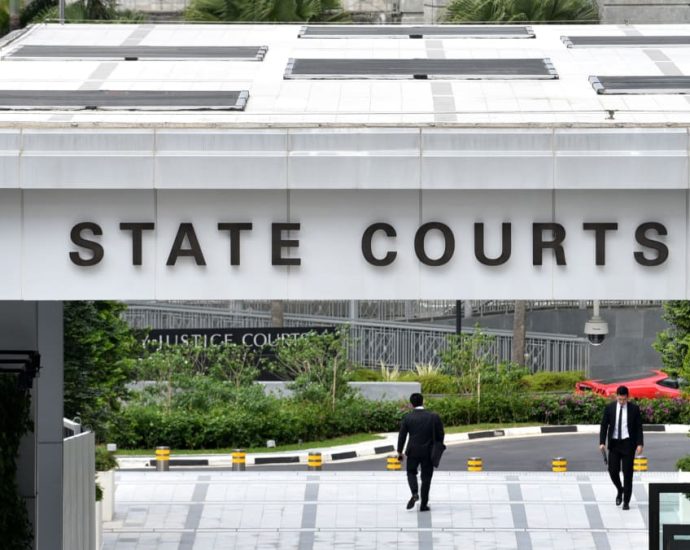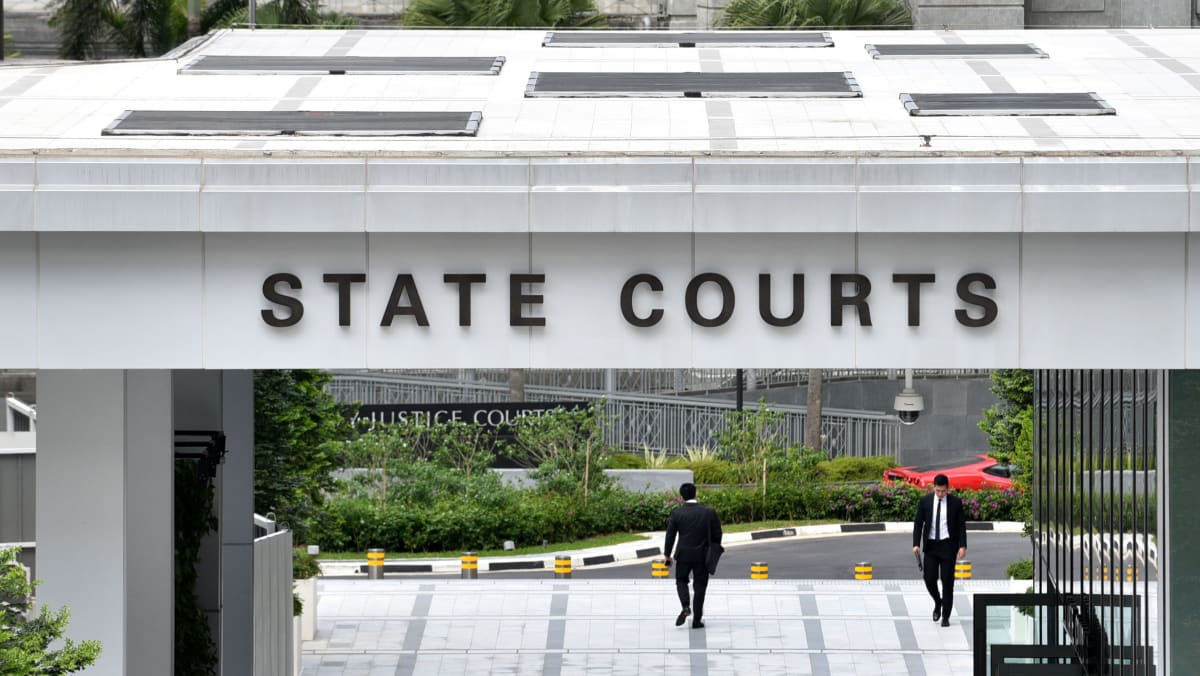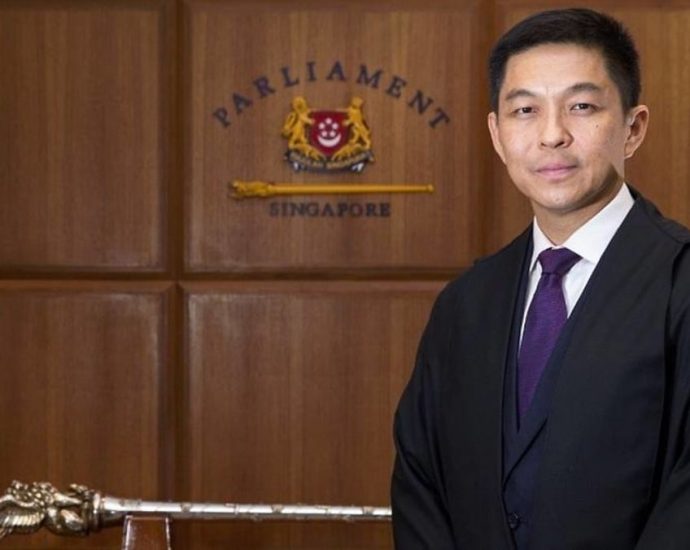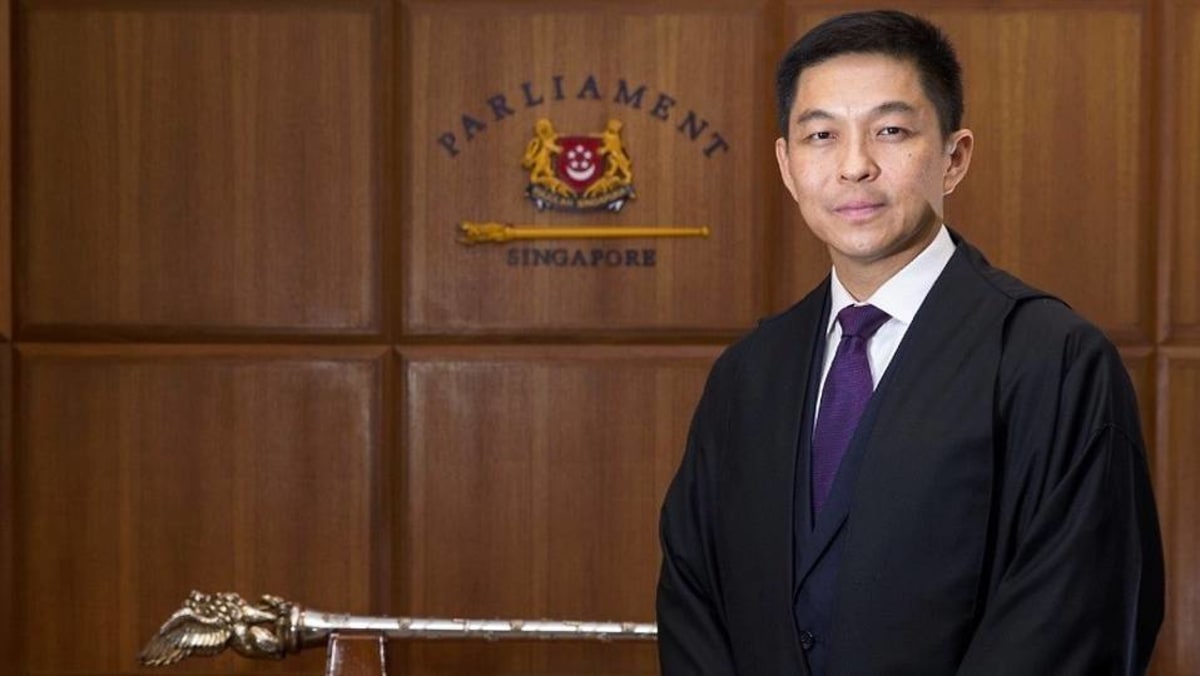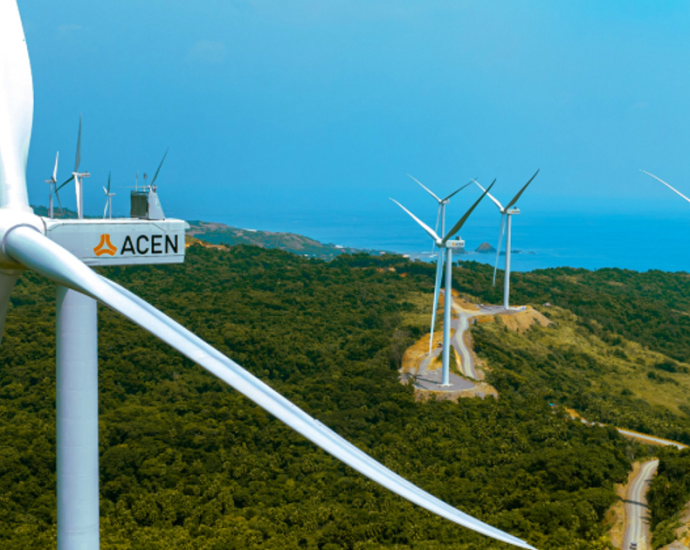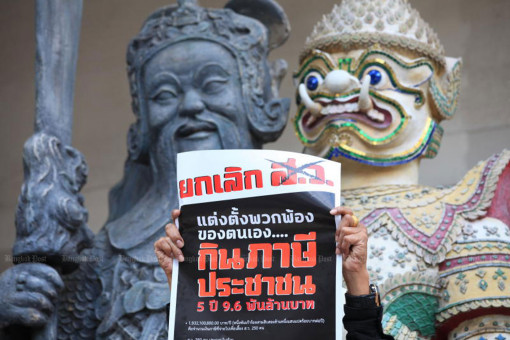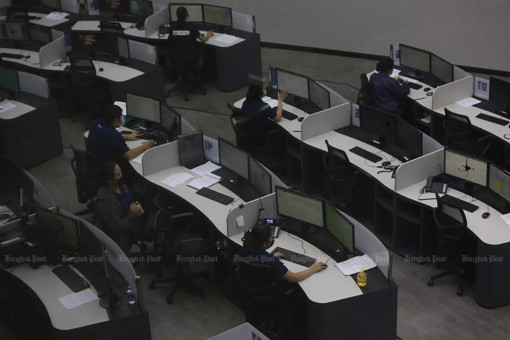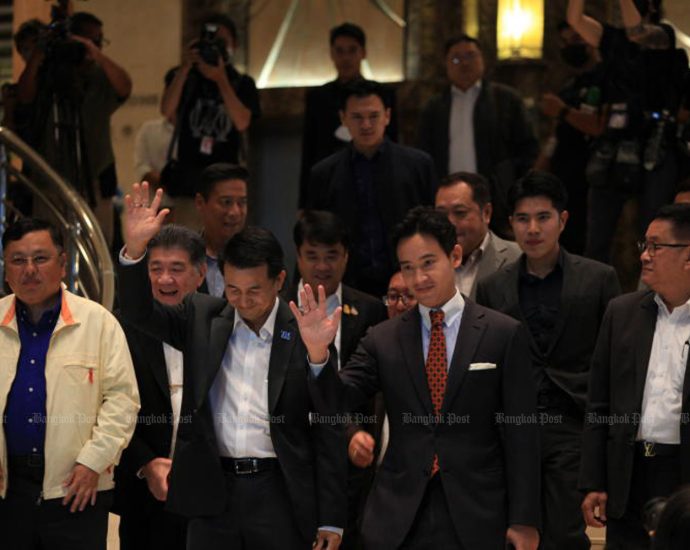Robots that deliver medication, voice-activated devices: Hospitals tap technology to improve patient care
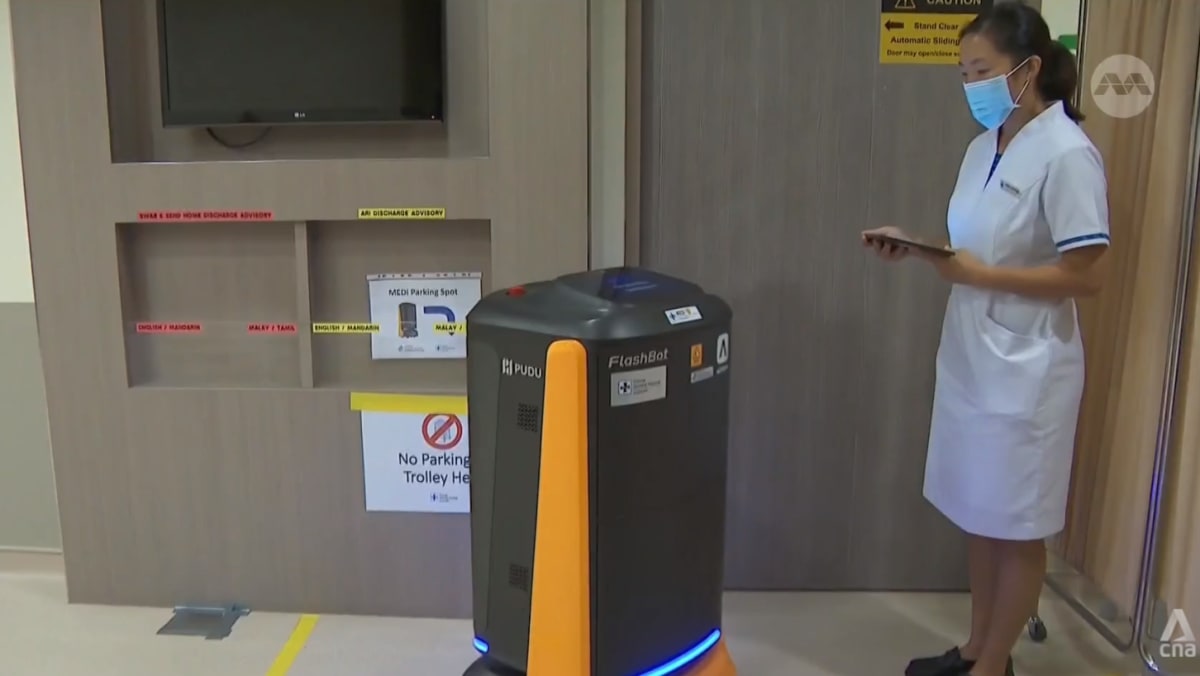
Another robot guides people to different areas of the emergency department, relieving nurses of the task of escorting patients in person, which typically takes one-and-a-half hours a day in total.
The consultation room is “quite a distance” away from the triaging area, said Ms Cheong. It speaks four languages – English, Mandarin, Malay and Tamil.
A third robot can perform dedicated tasks, such as providing patients in the waiting area with items they need like a blanket. The robot alone has reduced the workload of retrieving items by nearly half.
This means service staff can focus on other tasks like helping patients with payment or discharge queries.
The robotic trial is expected to end in August. CGH is looking to deploy the robots for more tasks or mobilise the machines elsewhere in the hospital.
SMART WARD AT TTSH
At Tan Tock Seng Hospital’s (TTSH) Smart Ward, several devices have been introduced to make healthcare more efficient.
One device allows nurses and doctors to update one another quickly hands-free, without the use of the phone.
With the completely voice-activated device, nurses can say the name of the doctor they are looking for, and the device will connect them.
“Traditionally, we have to pick up a phone, find the contact number of the doctors and then dial and connect with the doctors and wait for the doctors to arrive on site to the ward,” said Smart Ward lead and senior nurse manager Lim Mei Ling.
They can also use the device’s camera to scan items like medication or bandages for doctors to assess the situation and make a call on what to do next for a patient, saving time, Ms Lim added.
The device is one of 20 innovations that have been tested at the TTSH Smart Ward since 2022. Another new technology at the ward is a bed that turns bed-bound patients with the push of a button, reducing the need for labour-intensive work.

